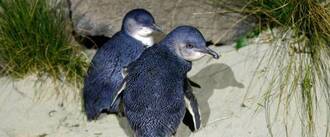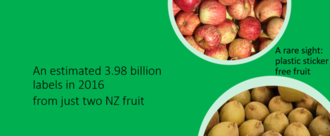-
Regulate firearms advertising in New ZealandWe are concerned about the way gun advertising is currently managed in New Zealand. Gun City has prominent billboards throughout our major cities. These advertisements are depicting gun use as a fun family activity using quotes such as “get the family outside”. This type of advertising is the first step to the normalisation of gun ownership. In light of the recent events in Christchurch we ask that an immediate moratorium on firearms advertising is put in place. It is highly inappropriate to see these images at a time when the nation is grieving from a horrific gun-related incident. We acknowledge that many New Zealanders have legitimate reasons to own guns for farming, hunting or sporting purposes, however we want the government to take steps to ensure that the advertising of all firearms including semi-automatic weapons are properly controlled. We believe firearms advertising should be regulated in exactly the same way as tobacco or any other harmful product. We want this country to be a safe place for all New Zealanders. We don’t want guns to be a normal part of New Zealand society. Driving past billboards advertising guns just feels wrong to so many people. Children were among the innocent victims of the recent massacre in Christchurch. It is distressing and a major concern that children are exposed to this type of advertising. Principle 1 of the Advertising Standards Code states that “Advertisements must be prepared and placed with a due sense of social responsibility to consumers and to society.” It goes on to say: “Advertisements must not contain anything that is indecent, or exploitative, or degrading, or likely to cause harm, or serious or widespread offence, or give rise to hostility, contempt, abuse or ridicule.” We believe that the current series of advertisements for Gun City is currently causing widespread offence and can be regulated under this section of the code. We ask for regulation of all firearms advertising under this section of the Advertising Standards Code.1,122 of 2,000 SignaturesCreated by Hannah Clarke
-
#triplethequotaAotearoa's Muslim community has suffered a devastating terrorist attack. It's motivation has been to destroy lives, families and divide us. New Zealanders from all walks of life call upon our politicians and leaders send a clear message to our refugee and migrant communities: they are wanted, they are not blamed and, they are welcome here. We call upon the Government of New Zealand to affirm this message with action and, triple New Zealand's refugee quota and lift the ban on refugees from the Middle East and Africa, effective immediately. In 2018 the quota was raised to 1500 from 750, due to come into effect in July 2020. This is still a tiny number and to raise to 4500 is the least New Zealand can do as a country. Let's say it loud and clear, refugees and welcome, racists are not. #TripleTheQuota https://www.stuff.co.nz/national/politics/107203279/refugee-quota-lifting-to-1500-by-2020 https://www.vice.com/en_nz/article/aej3aj/is-new-zealands-refugee-policy-closer-to-trumps-muslim-ban-than-you-think924 of 1,000 SignaturesCreated by Violet Wilson-Baird
-
Ban semiautomatic weaponsIt was a dark day in Christchurch. Innocent Muslim New Zealanders were gunned down in a place of prayer. High-capacity magazines make it much easier to conduct mass killings. The weapons used in this attack were exactly the type of weapon that police have been asking for greater control over. [1] We call upon the parliament to immediately take steps to legislate against the sale and possession of all semi-automatic weapons for private use. Other weapons designed for harm such as high capacity clips, military hardware ordnance, pump action pistols should also be banned. These weapons of war have no place in the hands of private citizens. They are not toys. They are designed explicitly for taking human lives. We call upon the NZ Parliament to take action. Donate to the Christchurch victims https://givealittle.co.nz/cause/christchurch-shooting-victims-fund https://www.stuff.co.nz/national/105882611/the-battle-over-semiautomatics-police-frustrated-by-the-law-firearm-owners-frustrated-by-police43,320 of 45,000 SignaturesCreated by Nik Green
-
An Open Letter from the Youth of AotearoaTo solve this crisis, everyone has a part to play. We are calling on all New Zealanders to support our call for action, and commit to helping drive change. ➡️ We are asking our business leaders to step up and stand alongside us. Current business practices are threatening our homes, our families and our communities. We will not stand by while greed for a quick profit undermines our future security, and fuels the loss of homes and livelihoods of our neighbours in the Pacific. If businesses want to continue to have the social license to operate, they need to be a part of the solution. We are the future of the economy, and we will not tolerate inaction on climate change. We ask you, our business leaders, to support our demands of Government and to commit to doing your bit by divesting your businesses from fossil fuels, reducing your emissions, and using your ingenuity and leadership to building the economy of the future; one which doesn’t cost us, and future generations, but instead safeguards our continued existence on earth. ➡️ We are asking our parents, grandparents, teachers and communities to step up alongside us. Think about the things you want for your children or the young people that you love; happiness, stability, freedom, peace, security, health. Climate breakdown puts all of these things at risk. Please listen to us, our hopes and dreams for the world, and help us to make them a reality. Your decisions every day, and your vote every three years, count. Empower your children to fight for their future, and stand in solidarity with them as they strike on September 27. So, will you join us? ❤️ You can also support the local campaigns for councils to take action on a safe climate future - support and share the campaign for your local council here: https://our.actionstation.org.nz/efforts/declare-a-climate-emergency13,679 of 15,000 SignaturesCreated by SchoolStrike4Climate NZ

-
Help NZ Thyroid Patients Get Treatment That WorksThyroid disease is more common than diabetes and heart disease. The World Health Organisation puts the world’s population of diagnosed thyroid patients at >750 million. New Zealand’s diagnosed population is >146,233. Many more are misdiagnosed or experience mismanaged care. Common symptoms include debilitating unexplained fatigue, unexpected weight gain/loss, depression, miscarriage, cold/heat intolerance and brain fog. Left untreated thyroid disease influences the onset of other diseases such as cancer, heart disease, and dementia; and in some cases early death. In the 1940s and 1950s doctors and endocrinologists diagnosed on signs and symptoms, prescribing treatments that worked. Then came the arrival of the TSH blood test and a synthetic drug called Levothyroxine which changed the way many doctors and endocrinologists diagnose and treat patients. As a result there is a large number of patients for whom these diagnostic and treatment approaches do not work. For example, all too often: - Doctors and endocrinologists miss altogether or misdiagnose thyroid disease in patients because they don’t recognise the signs and symptoms. Patients are often tested unnecessarily for other illnesses imposing cost on them and District Health Boards. - Patients who are prescribed Levothyroxine often experience ongoing symptoms. Alternative thyroid treatments containing a thyroid hormone called T3 work better for many of these patients. Most are never offered this treatment even though it is available, safe and effective. It is now difficult to find a NZ doctor or endocrinologist with the right knowledge to help thyroid patients. Those NZ doctors who are successfully diagnosing and treating thyroid disease need greater support; and the other doctors and endocrinologists need further education. By signing this petition you can help us change this. Each signature represents a patient, or a person who loves a patient who has been misdiagnosed, mistreated or dismissed by their endocrinologist or doctor. Thyroid Association of New Zealand is a patient-to-patient support group, started in July 2008. We are a voluntary organisation, whose founding members came together when Glaxo Smith Kline changed their Eltroxin formulation, causing adverse reactions among users. For more information about the thyroid or help finding a doctor who can help, visit us at: http://www.thyroidnz.org or Facebook at: https://www.facebook.com/groups/thyroidnz/. References: To read just some of the statistics and clinical evidence supporting our petition go to: http://www.thyroidchange.org/related-research.html or email us at: [email protected].4,076 of 5,000 SignaturesCreated by Thyroid Association of New Zealand

-
Say NO to More Pokies for Sky City Casino HamiltonSky City Casino Hamilton are requesting that the Gambling Commission allow an increase in the number of pokie machines in their Hamilton Casino. An additional 60 machines would bring their total to 399, almost half the machines in Hamilton. The Hamilton City Council’s sinking lid policy should see levels reduced not increased. Hamilton City Council has no jurisdiction on the decision to grant the additional gaming machines but is one of only 4 groups invited to comment. Residents are not being given the opportunity to voice their concerns regarding Sky City’s request to Government for additional pokie machines. In total Hamilton currently has 745 gambling machines. - The revenue that Sky City Casino earned mostly from it's 339 pokie machines in the last financial year was approximately $39m - $698,000 or 1.8% was returned to the wider Waikato community in grants.” - Department of Internal Affairs figures show that the City’s other 406 pokie machines (with all the problems they also cause) had a combined revenue of approximately $25m - $10.5m or 42% was returned to the wider Waikato community. So whichever way you look at it, and even if you mistakenly thought pokie machines do no harm, 60 more machines at the Sky City Casino represent a very poor return for the community and goes against the well thought out policy designed to protect us from the expansion of gambling machines and their undeniably addictive attraction to many Hamiltonians. https://www.radionz.co.nz/news/national/380237/hamilton-mayor-moves-to-block-sky-city-pokies-expansion Addiction to pokies https://interactives.stuff.co.nz/2018/01/whos-in-charge-of-michael/223 of 300 SignaturesCreated by Deborah Fisher
-
No Means No - Show NZ Cricket condemns sexual violenceScott Kuggeleijn clearly demonstrated a lack of respect for women during his rape trials, and has failed to express any concerns over his behaviour since. He was found not guilty, in cases which many New Zealanders watched via the media in absolute horror. How many times do women have to say no to sex, before we believe them? When Scott Kuggeleijn is picked for New Zealand, what does this mean for cricket fans? Survivors of rape? What does this mean for women in New Zealand? And what does this mean for his team-mates? Having sportsmen represent New Zealand's top teams who show these kinds of views is embarrassing, and in 2019, just unacceptable. Other countries have stopped selecting men with similar views - India https://bit.ly/2R0z2XA - Ireland https://bit.ly/2RDwfox - England https://es.pn/2Dkq43K Our national team says something about all of us. C'mon NZ Cricket, show us that you're not part of New Zealand's sexual violence problem - and that you want the support of all New Zealanders. Other reading: Sexual Politics Now https://bit.ly/2FAxL8k The Spinoff https://bit.ly/2TYcNDy Stuff https://bit.ly/2Cqer9G1,254 of 2,000 SignaturesCreated by Sandra Dickson
-
PM Jacinda Ardern: Prevent violence against women and invest in support for victims and survivorsIt’s difficult to know how to express the horror so many of us feel about what happened to Grace Millane. She was 21, on the trip of a lifetime, with her whole life ahead of her… and then she was gone. When women are murdered, it is a reminder that our safety is an illusion. We have some of the worst statistics for sexual violence and violence against women in the OECD. Most of that violence is at the hands of our men. For some time people at the front line with first-hand experience of violence against women, and those who support them, have been calling for the nation to do some soul-searching and to seek solution-based actions. Women going on solo adventures or meeting new people for dates are not the problem here. Men who commit acts of violence against women are. But violence is preventable if we work together at an individual, whānau, community, regional and national level. Most decent New Zealanders will be devastated by Grace’s death. The vast majority of us feel horrified for her parents and her family, and send them all our love. But we must open our eyes to the dangers facing women in our country. We must remove our rose-tinted glasses. The government and men of New Zealand must take action; for Grace and for all of the women who have lost their lives to violence in our country. Rest in peace and aroha, Grace. On behalf of all New Zealanders, we are so very, very sorry. We promise to do better as a nation. *** An open letter with the same asks has already been sent to PM Jacinda Ardern and was published in the New Zealand Herald on Saturday 15 December. See the news story here: http://bit.ly/2ULCWGU See the letter that was sent to PM Jacinda Ardern here: http://bit.ly/2zZi9qp For a list of other ways you can take action and organisations you can donate time or money to, visit www.HelpWahine.org.nz.7,416 of 8,000 SignaturesCreated by Team ActionStation

-
Protect Timaru's Penguins — Improve Road Safety Along Marine ParadeLast night (08/12/28) a little penguin (kororā) was hit and killed by a car on Marine Parade in Timaru. The incident happened in front of 90 tourists and locals (including children) who had come to watch the penguins come ashore. The bird was of breeding age and its mate was seen calling for over an hour after it was killed. It is not known whether the pair had eggs or chicks on the nest, however, this is likely to be the case at is currently breeding season for kororā. Forest & Bird South Canterbury is calling on Timaru District Council to use this tragedy as an opportunity to reduce the speed limit to 30 km/hr, install judder bars or road islands, and consider closing the road to non-port-related traffic after dark. The current speed limit is 50 km/hr but our members have witnessed people driving at excess speeds along Marine Parade again and again. We often take down the registration numbers of vehicles that we see speeding and report them to local police, yet people continue to speed past — sometimes at up to 100 km/hr. We are exceptionally lucky to have this breeding colony of endangered penguins (kororā) so close to our town centre. After a short drive or walk, we can watch them come ashore — undeterred by traffic and noise from the port just metres away. The penguins are an increasingly important part of our local economy. Last year, they attracted up to 100 visitors every night, with some people visiting specifically to see them. This is a safety risk. Not just to the kororā, but also to the people who stand along Marine Parade to watch them come ashore. The Timaru District Council must keep visitors and penguins safe from dangerous driving by reducing the speed limit to 30 km/hr, installing judder bars or road islands, and considering the closure of the road to non-port-related traffic after dark. We would also like to see local police targeting speeding drivers with regular patrols in the area.1,467 of 2,000 SignaturesCreated by Kimberley Collins

-
Safe parking for the staff of Middlemore HospitalThe cars of Middlemore Hospital staff are frequently broken into, causing distress and unexpected costs for the staff. This happens in the staff parking lots which are too easily accessible for people from outside the hospital. Windows are smashed, things are stolen, steering wheels are broken, ignitions damaged. The fact that this mostly happens at night is very stressful for the staff who finish a shift at midnight and then often cannot drive themselves home because their cars have been damaged. There is also not enough parking for all the staff at the hospital.2,348 of 3,000 SignaturesCreated by Anna Majavu
-
No more plastic fruit or vegetable stickers for NZ produceRemoving plastic labels is publicly supported. As at 24 November 2018 86% of Stuff readers think plastic stickers on fruit should go.^^ Just two NZ produced fruit alone in 2016 resulted in an estimated 3.98 billion plastic labels.*** Plastic stickers also cause issues at compost facilities.^^^ This is unnecessary personal hassle for consumers and unnecessary use of plastic and environmental pollution. * https://www.nzherald.co.nz/nz/news/article.cfm?c_id=1&objectid=10352393 ^ e.g. https://www.theguardian.com/sustainable-business/2017/jan/16/ms-and-swedish-supermarkets-ditch-sticky-labels-for-natural-branding ** http://www.hortnz.co.nz/news-events-and-media/media-releases/new-zealanders-want-country-of-origin-labelling-on-fruit-and-veges/ *** In 2016 124m trays of Zespri kiwifruit were produced and 350,000 tonnes of apples. http://www.freshfacts.co.nz/files/freshfacts-2016.pdf ^^ https://www.stuff.co.nz/auckland/105890179/Fruit-stickers-are-overused-say-the-creators ^^^ https://modernfarmer.com/2018/03/little-produce-stickers-are-big-waste-problem/301 of 400 SignaturesCreated by Adam Crisp
-
Double investment in drug treatment in this year’s budgetBy mid-December the Government will have made some important decisions about next year’s Budget. First in their minds should be a focus on improving the health and wellbeing of all New Zealanders - especially those who are most vulnerable. Unfortunately, by the time the Government makes their budget decisions there’s also a good chance more people will have tragically died from the use of synthetic cannabinoids. There have been 50 deaths at least over the past 18 months, and there is no chance this public health crisis will fix itself. Continuing to punish people who use drugs will only make things worse. We have a plan to turn things around. If the government makes the right funding decisions now, and follows this up by legislating for a health-based approach to drug use, we can save lives. Investing in health and treatment also makes economic sense. An economic report released in October, "Estimating the Impact of Drug Policy Options", found that if we invest $150million extra in drug-related harm reduction and treatment programmes, this would return a social benefit for New Zealand of at least $225million. Sign the petition to ask the Prime Minister to ensure that next year’s Budget reflects just how urgent this crisis is. Let’s ensure that everyone can access help when and where they need it. This petition is supported by JustSpeak, ActionStation, the New Zealand Drug Foundation, Hāpai Te Hauora, the Needle Exchange and Te Rau Matatini. We’ll be doing more work together to ensure the government treats drug use as a health and not a criminal issue in the lead up to election 2020.582 of 600 SignaturesCreated by Tania Sawicki Mead


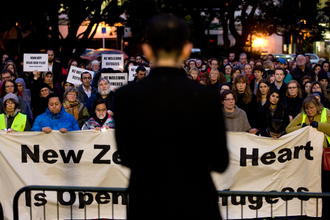
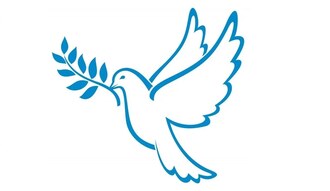
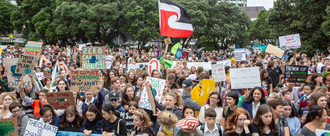
.jpg)
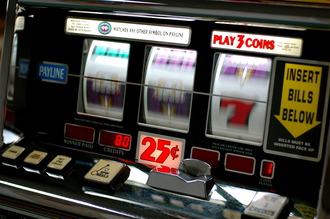
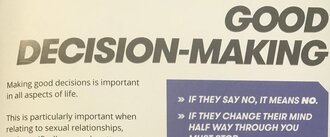
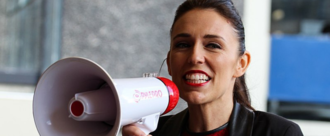.png)
